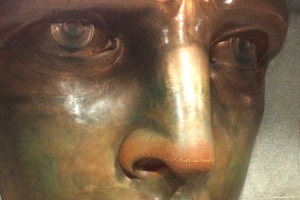
The Statue of Liberty, which has long been an iconic landmark in NYC and an important symbol of our nation, might not stand in New York harbor were it not for crowdfunding.
The statue itself was a gift from France to celebrate democracy and freedom, but the gift was contingent on The United States erecting a pedestal suitable to house the colossal statue. Unfortunately, the American Committee for the Statue of Liberty was unable to raise the necessary funds, and in 1884 it appeared that the U.S. would not be able to come through on its side of the bargain.
Joseph Pulitzer, however, came to the rescue. He crafted a heartfelt appeal to the American people and published it in New York World.
We must raise the money! The World is the people’s paper, and now it appeals to the people to come forward and raise the money. The $250,000 that the making of the Statue cost was paid in by the masses of the French people- by the working men, the tradesmen, the shop girls, the artisans- by all, irrespective of class or condition. Let us respond in like manner. Let us not wait for the millionaires to give us this money. It is not a gift from the millionaires of France to the millionaires of America, but a gift of the whole people of France to the whole people of America. (from nps.gov)
He asked for small donations and recognized all donors in the newspaper. In a matter of 6 months, he raised over $100,000 – more than enough for the completion of the pedestal.
This effort by Pulitzer is an exceptional example of crowdfunding done right.
- There was an immediate need to be filled.
- The appeal was emotional, appealing to pride and populism.
- There was public recognition for every donor.
- Ultimately, there was a spectacular monument erected so people could see what their funds had done and celebrate their part in it.
[messagebox type=”info” ]
For a hilarious and debauched telling of this tale, CLICK HERE to see Drunk History’s video.
Caution…if you are easily offended this video is not for you.
[/messagebox]
Let’s think about how Pulitzer’s endeavor still serves as a model for how we raise funds today.
- Good campaigns have a fixed deadline. This serves to create urgency.
- Like the one published in New York World, appeals should really be stories. They should be personal and poignant. They should show anyone who visits why this cause matters and why they should play a part.
- Recognition is important. A private thank you is necessary, but public acknowledgement of a donor is an amazing motivator. Most donors will never have their names on a building, but if they have something public and tangible to point to, it can serve the same purpose.
- Impact is shared. Donors what to see the result of a gift. This might be a physical structure, but most often the impact is something less tangible. That just means we get to be creative about showing people how their gifts made a difference. The key here is to make the demonstration of impact as powerful and emotional as the original appeal.
Think you have what it takes to make crowdfunding work for your organization? Want to start your own crowdfunding campaign?